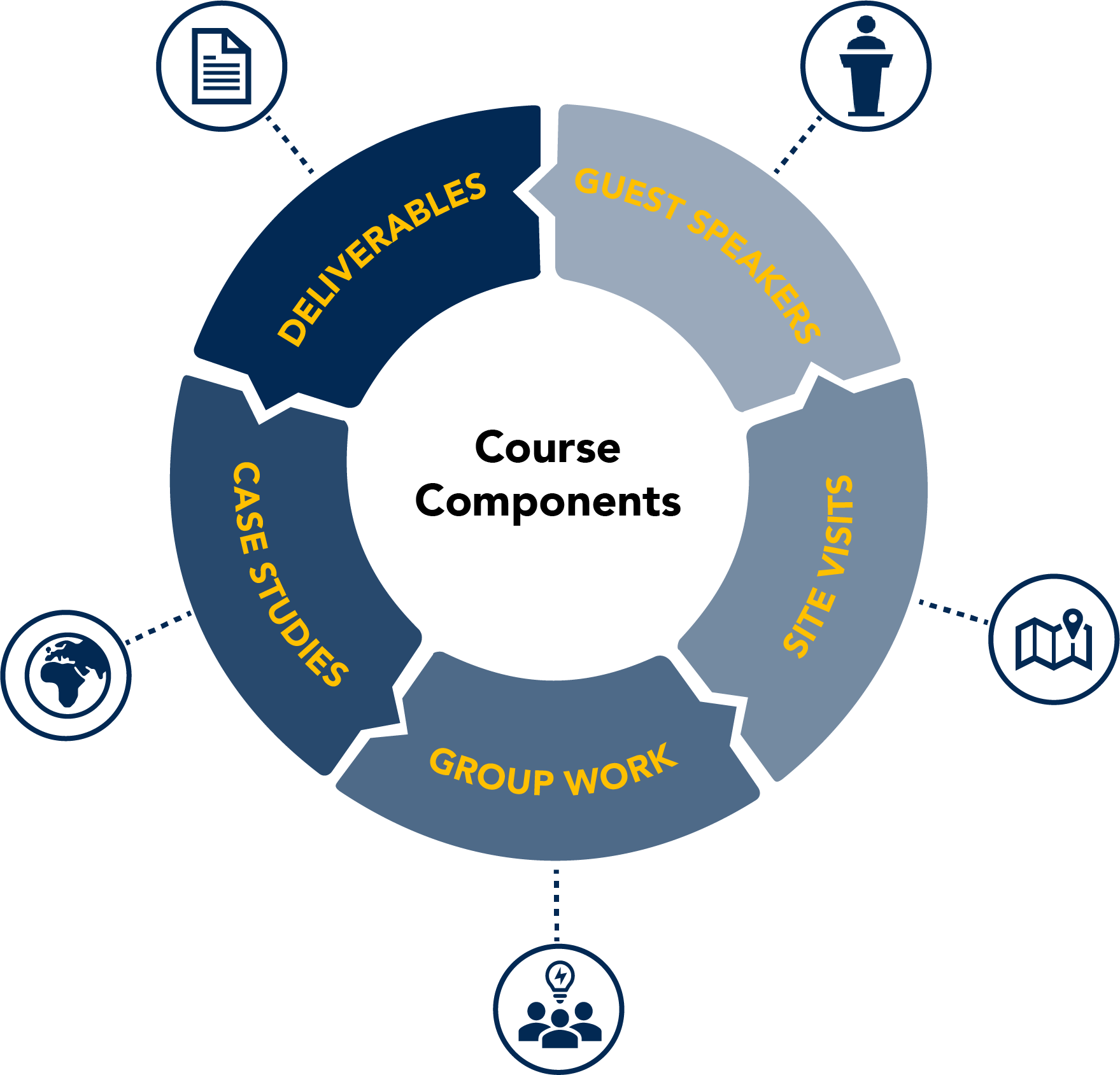Welcome to the D-Lab toolkit! This online toolkit is designed to give teachers and administrators the resources they need to create their own project-based, client-focused courses based on the model we use at UC Davis.
UC Davis D-Lab courses are offered as a two-part module: Feasibility Studies and Design, Build, Test (DBT). In Feasibility Studies, students evaluate whether a project is a good idea and if it is, how best to move forward. In Design, Build, Test, they design a physical prototype.
What's inside the D-Lab toolkit
The toolkit contains guidelines for preparing and teaching the design and feasibility courses, as well as curriculum materials to help you get started.
-
“Course set-up” is a manual with advice on finding clients, selecting good projects, recruiting students, and identifying resources. This manual can be used to set up a feasibility studies or prototyping course.
-
“Teaching feasibility studies” contains information about course organization, forming and managing student groups, and the deliverables we use to structure the course. On this page, you will also find downloadable powerpoint presentations for selected topics and analytical tools that instructors can edit and incorporate into their own curriculum.
-
"Teaching Design, Build, Test" contains the design workbook we use in our class in .pdf form and links to several existing resources for teaching human-centered design.
Toolkit Motivation
This project seeks to empower instructors at universities, Horticulture Innovation Center partners, and other partnering organizations to develop their own D-Lab curriculum. By doing so, we hope to:
-
Spread D-Lab methodology to other institutions
-
Empower students around the world to design and implement their own creative, feasible solutions
-
Provide guidelines and resources to instructors/staff
The toolkit was created based on the methodology used in project-based courses at UC Davis, as well as our experience supporting global partners that have implemented D-Lab style classes at their institutions, including the Horticulture Innovation Lab Regional Centers in Honduras and Thailand.
About UC Davis D-Lab
The UC Davis D-Lab works with local and international partners to find scalable, sustainable solutions for issues in their host communities. Faculty and students from Engineering, International Agriculture Development, Business, Community Development, Energy, and other disciplines work in the classroom and in the field in to accelerate appropriate solutions. The D-Lab classes that are taught at UC Davis include:

-
D-Lab Pro I: Feasibility Studies
-
D-Lab Pro II: Design, Build, Test
-
A Path to Zero Net Energy
-
A Path to Zero Waste
-
Problem Framing
-
D-Lab WASH: Feasibility Studies
The key to UC Davis D-Lab courses is that students work on one consulting-style project for a client throughout the course. From an instructor’s perspective, the continual opportunities to problem-solve and apply knowledge to a real-world situation makes for more motivated, engaged students. The students, in turn, acquire professional skills and experience beyond academia, and our design-based approach allows them the freedom to explore and develop creative confidence. A successful project has the potential to make a positive impact on the local or global community, and it gives the institution an opportunity to form valuable new partnerships.
Ultimately, the purpose of project-based, client-focused courses is two-fold:
- the first is to find sustainable, scalable solutions to pressing global issues
- the second is to give students the skills they need to turn ideas into action
Sharing the D-Lab methodology with other institutions allows the program to address one of the key challenges identified by the Global Horticulture Assessment:
“Lack of human, institutional, and research capacity inhibits innovation, technology adoption, and the development of solutions to address key constraints in the horticultural industry. The development of effective education and extension networks, involving public, private, and civic sector collaborations, will strengthen the technical capacity of horticultural producers and improve the efficiency of current production and marketing systems.” (GHA, 2005)
The UC Davis D-Lab vision is that by empowering Horticulture Innovation Lab network with tools to teach such courses to their institutions' own students, the toolkit will facilitate locally-based, scalable innovation and capacity-building.
